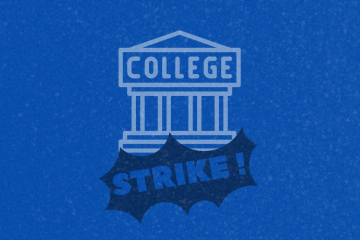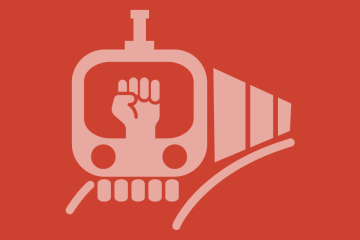The Communist Party expresses full solidarity with LCBO workers and their union who are bargaining for a decent contract and against the Ford government’s privatization agenda. Privatization of the LCBO will mean a major loss in revenue, resulting in more severe cuts to health, education and public services.
LCBO workers have voted for a 97% strike mandate. The LCBO has recently said that they will close stores for two weeks in the event of a strike or lock out, which demonstrates that they are not planning on negotiating fairly to reach a deal. There may be a lockout or strike as early as Friday, July 5th.
In recent years, LCBO jobs have become increasingly precarious and part-time, as is the case in many sectors. The LCBO has also contracted out distribution to other retail stores and online ordering to third party contractors. This contracting out is part of the privatization agenda and designed to attack wages and working conditions and is a major threat to the union.
The workers are united in their fight for job security, hours of work, the expansion LCBO services (including store hours and locations to meet demand), reversal of contracting out, and winning more permanent, full-time jobs. It is clear that LCBO workers’ job security and working conditions are directly connected to working class Ontarians’ interests in keeping the LCBO and its revenue public.
In late 2023, the Conservative government announced that grocery stores, big box stores, and convenience stores would be permitted to sell beer, cider, wine, and premixed cocktails without restrictions starting in January 2026. This was done by announcing that the agreement with the brewer monopoly owned Beer Store would expire, which limited where beer could be sold in Ontario, also clearing the path to further privatize LCBO sales.
Even this pace of privatization was shown to be insufficient for the Ford government when it announced a month ago that it would pay out $225 million in public funds to the international brewery monopolies in order for the contract to expire this year and allow Ontario’s corporate stores to start selling alcohol earlier.
Under the guise of choice and convenience, the province is undermining social responsibility, decent union jobs, and a significant source of public revenue that is used to finance public services, such as public health programs which mitigate the negative effects of alcohol addiction. The sell-off will benefit the retail monopolies, in particular Loblaw and Circle K, an industry the government has consistently supported with a variety of policies at the expense of the public. As OPSEU, the union representing LCBO workers, has stated, “when you buy a beer, that should help build a hospital – not pay for a billionaire’s new yacht.”
The LCBO has over 8000 unionized employees in close to 700 stores across the province, represented by OPSEU, and delivered $3.72 billion in public revenue in 2023—$2.58 billion going to the province. Each employee generates an average of $1943.84 in sales per hour, or $975.85 in public revenue—$676.80 going to the province.
The Communist Party will stand with workers if they are forced out by lock-out or strike in the coming days. We demand the LCBO negotiate in good faith and reach a deal that meets the demands of workers and the public. The corporate privatization agenda must be stopped and reversed and the fight of LCBO workers is a very significant battle in this broader struggle.
Rather than dramatically expanding alcohol sales in private retail stores while risking decent jobs and encouraging the decline of the LCBO’s public revenue stream we reiterate the Communist Party’s demands that the provincial government:
- Expand and strengthen the publicly owned LCBO by:
- Absorbing the 389 privately owned “LCBO Convenience Outlets” in rural Ontario and over 500 private wine kiosks located primarily in grocery stores;
- Allowing the MFA to expire as it would have in 2026 and placing The Beer Store into public ownership through the LCBO;
- Absorbing the Ontario Cannabis Store (OCS) and placing all privately owned cannabis retail shops into public ownership through the LCBO;
- Increasing LCBO hours of operation and opening new stores where necessary;
- Utilize the LCBO’s retail monopoly to mitigate the harmful impacts of alcohol addiction by:
- Eliminating the ability of grocery stores and other retailers to sell alcohol, ensuring that all people have the right to access groceries without having alcoholic products being promoted on the same shelves;
- Increasing the public revenue in order to finance comprehensive public health care services including addiction treatment;
- Utilize the expertise and infrastructure of The Beer Store and LCBO to improve food security by designing public food distribution infrastructure modelled on the low-cost distribution system and province-wide price uniformity that currently exists for alcoholic beverages, particularly for Northern and remote communities.



